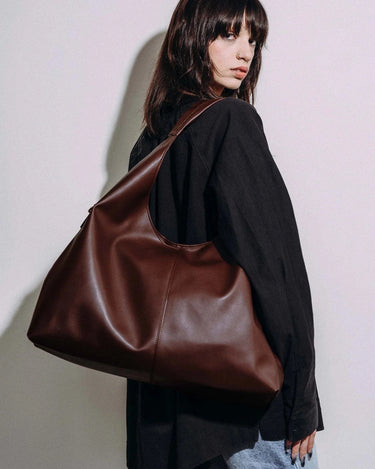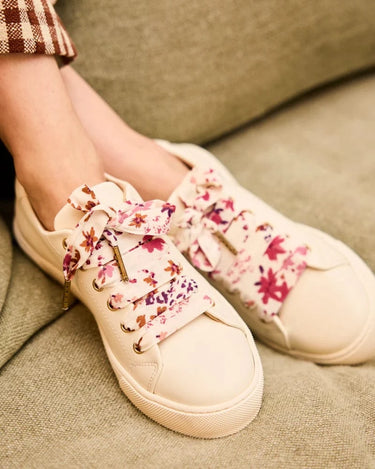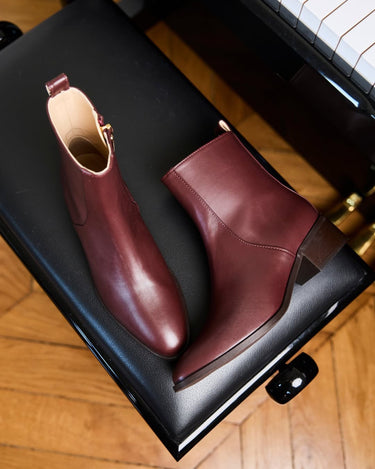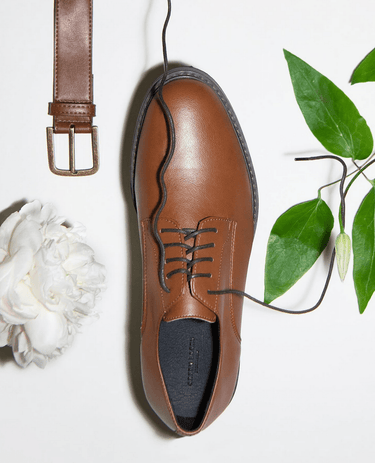Bamboo: Fashion's Sustainability Superhero?
Versatile, comfortable, and renewable: bamboo isn't only for plastic-free alternatives such as toothbrushes. This plant-based material can also be a great choice for creating fashion that will last beyond the seasons.
By Sascha Camilli writer, speaker, activist, and vegan fashion expert.
What is bamboo fabric?
Sometimes labelled “the world's most renewable material”, bamboo is the fastest-growing woody plant in the world – it can sometimes grow up to four feet in one single day. The bamboo plant takes only 1-5 years to reach full maturity, depending on the variety of plant – and there are quite a few to choose from. There are over 1200 different species of bamboo in the world, growing in Southeast Asia, South America and certain regions of North America. Among other uses, it's grown for food: bamboo shoots are a frequent part of many local Asian dishes. Bamboo is also commonly used in construction: it can function as scaffolding as well as a building block for huts and houses.
How is bamboo fabric made?
Once harvested, bamboo is crushed and pulped so that it can be turned into a variety of fabrics. It can be made to look like linen, with a light and breathable feel. It can also be transformed into rayon or viscose, which are two of its most frequent uses. When it comes to transforming bamboo into rayon and viscose, sodium hydroxide and carbon disulphide are used to create a pulp, which is then spun into yarn. This process isn't without its issues – it requires intensive practices and uses substances that harm the health of workers and contribute to emissions. However, recent improvements in waste treatment and management of chemicals have made this process more eco-conscious.
Is bamboo fabric sustainable?
When created in a way that pays attention to its impact, bamboo can indeed be a sustainable material. Bamboo's superhero properties mainly lie in its abilities to absorb carbon dioxide and produce oxygen. It absorbs five times more carbon dioxide and produces 35% more oxygen than an equivalent group of trees, which adds to its eco-boosting credentials. Another advantage is that it's renewable: after the bamboo is harvested, it regrows from the roots and doesn't need re-planting. As the harvest doesn't involve touching the roots, the soil is left intact, which is beneficial to its health.
According to Scientific American, "bamboo can be cultivated with little to no fertilizer, pesticides, heavy harvesting machinery or irrigation, and bamboo root systems can protect steep banks from erosion." In fact, this fibre doesn't require any pesticides or herbicides, which are highly damaging to both the environment and human health. These harsh chemicals contaminate soil and water, and have adverse effects on plants' well-being. In humans, long-term exposure to them has been linked to Parkinson's disease, ADHD, and some cancers. But just because pesticides aren't required to make bamboo fabric, this doesn't mean that they were not used anyway, for maximum results. Intensive farming is however considered very bad practice in the industry.
Bamboo is a significant improvement to using polyester and other petroleum-based synthetics, and it's also more sustainable than conventional (non-organic) cotton. This versatile material lends itself well to a variety of designs, such as basics, activewear and socks, but also baby essentials - or pyjamas and loungewear, as showcased by the brand Charlotte Dunn. The lightness and comfort of bamboo lends these items their softness.

But bamboo can also be used in unexpected ways – for example, fashion brand Stelar creates hand-woven bags and accessories made from this eco-friendly material. Stelar uses bamboo from Indonesia, which is grown organically and harvested by local communities and dried in the sun, before artisans transform it into fashion accessories. As a result, Stelar's collections stand out for their unique design.
"Bamboo is naturally regenerative and is highly durable, which makes it a great material for a conscious brand to work with," says Lorna Watson, founder of Stelar. "The bamboo we use is grown organically and harvested by our artisan communities, which allows us to create high-quality contemporary designs whilst minimising our environmental impact. Using time-honoured skills and created to last for years to come, our bamboo bags reflect our dedication to fine craftsmanship and slow fashion."
How is bamboo leather made?
Lately, vegan leather brands have expanded into bamboo-based leather. New-generation material pioneers Miomojo are among those who have introduced bamboo leather to the bag market. "In collaboration with Italian B Corp companies Forever Bambù and Mabel Industries, we’ve developed a short, transparent supply chain using organically grown bamboo from the Po Valley," Miomojo founder Claudia Pievani tells us, motivating the brand's choice with environmental sustainability. "Bamboo requires no pesticides and very little water. To give you an idea: producing 100 bags saves over 3,500 litres of water, while bamboo itself absorbs five times more CO₂ than trees. This project was even presented at the Italian Parliament as a case study in sustainable innovation." Bamboo-leather bags are also available at UK-based brand Votch.
Is bamboo chemical-free?
Like most materials used in fashion, bamboo fabric and leather aren't always free from fossil fuels or synthetic substances - but they can be. Viscose and rayon contain synthetic chemicals, but there are ways to process bamboo fabric without plastic components or petrochemicals. Bamboo leather, too, can be made with a varied degree of chemicals. Some brands, such as Votch, use a bamboo leather with a bio-based polyurethane coating - this minimises reliance on conventional synthetics, but is not biodegradable or plastic-free.
However, it's important to remember that animal leathers aren't plastic-free either. At times, animal skins can be coated in plastic, and following the tanning process, leather is usually no longer biodegradable.
How to care for bamboo fabric and bamboo leather
Bamboo fabrics are usually machine washable - often on a delicate cycle, or according to what's stated on the care label. Bamboo leather can be cleaned by wiping with a soft microfibre cloth and using mild, vegan soap. Stylist Rebekah Roy advises to use filtered water "to avoid leaving stains from calcium. I wipe the spot gently and then I wipe again to remove any soap residue. Dry it right away - you don't want any water sitting on the surface."
What are the benefits of bamboo fabric and bamboo leather?
Like many other natural materials, bamboo is kinder to the environment than synthetic counterparts and animal-derived fibres. Needless to say, it's also kinder to animals as it spares them the bleak fate of factory farming. The practices involved in the production of these materials leave a lot to be desired, but there is hope as they are already improving. The future is certain to bring even further innovation, elevating this fabric to true superhero status.
By Sascha Camilli
About Sascha
Sascha Camilli is a vegan fashion writer, speaker and activist. Her book Vegan Style is out now on Murdoch Books. For more about Sascha, you can read our interview with her or read her newsletter Kind Of Wild. You can also follow her on Instagram.
Cover image by Miomojo. Second photo by Charlotte Dunn, third photo by Stelar. Final image by Miomojo.
For more great content like this in your inbox, sign up to our newsletter, and save 10% off your next purchase, plus great savings throughout the year.
Related Articles

Vegan Christmas Gifts For Him

Vegan Christmas Gifts For Her


















































































































